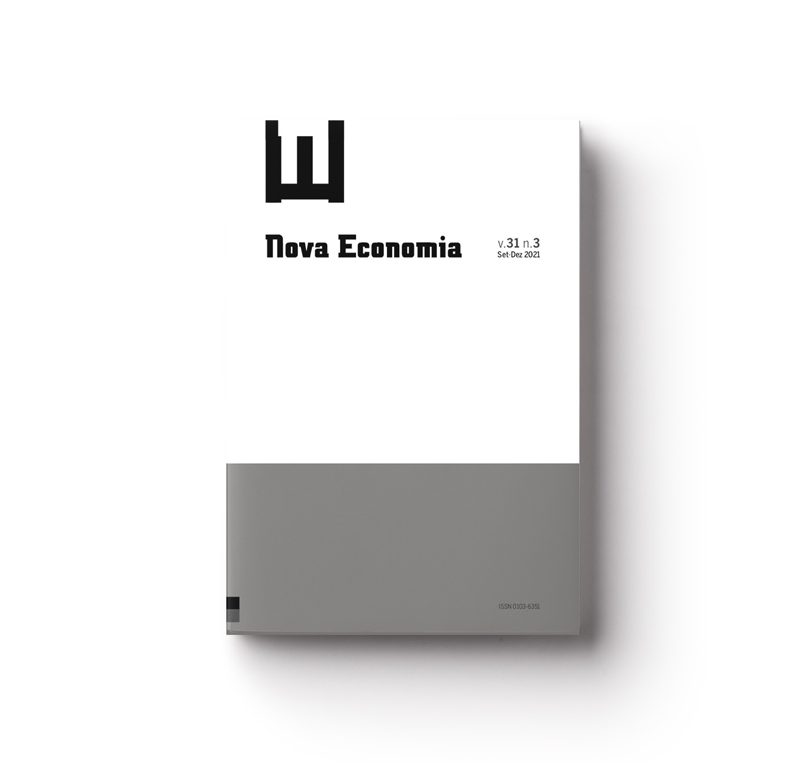Conexões do pensamento de Celso Furtado com o institucionalismo vebleniano: hábitos, emulação e efeito-demonstração
Resumo
Este artigo busca elementos do institucionalismo original para fazer uma releitura da dinâmica de desenvolvimento de países periféricos. Com base nas especificidades dos países subdesenvolvidos destacadas pelo estruturalismo, procuramos estabelecer um nexo teórico com o institucionalismo, no intuito de apreender aspectos intrínsecos de estratificação da estrutura social na periferia. Nesse sentido, incorporamos a noção vebleniana de emulação como a raiz analítica do efeito-demonstração, que, a partir do consumo conspícuo, difunde e legitima padrões de consumo e produção para a sociedade. Concluímos que a complementaridade das abordagens contribui para aprofundar a compreensão sobre aspectos sociais do processo de diferenciação do sistema centro-periferia.
Palavras-chave: estruturalismo; institucionalismo; desenvolvimento econômico.
Ccódigos JEL: B41, B52, 043
Downloads
Publicado
Como Citar
Edição
Seção
Licença
Copyright (c) 2021 Ademir Pedro Vilaça Júnior, Octávio Augusto Camargo Conceição

Este trabalho está licenciado sob uma licença Creative Commons Attribution 4.0 International License.
Autore[a]s que publicam nesta revista concordam com os seguintes termos:
- Autore[a]s mantém os direitos autorais e concedem à revista o direito de primeira publicação, com o trabalho simultaneamente licenciado sob a Licença Creative Commons Atribuição 4.0 Internacional que permite o compartilhamento do trabalho com reconhecimento da autoria e publicação inicial nesta revista.
- Autore[a]s têm autorização para assumir contratos adicionais separadamente, para distribuição não-exclusiva da versão do trabalho publicada nesta revista (ex.: publicar em repositório institucional ou como capítulo de livro), com reconhecimento de autoria e publicação inicial nesta revista.
- Autores têm permissão e são estimulados a publicar e distribuir seu trabalho online (ex.: em repositórios institucionais ou na sua página pessoal) a qualquer ponto antes ou durante o processo editorial, já que isso pode gerar alterações produtivas, bem como aumentar o impacto e a citação do trabalho publicado (Veja O Efeito do Acesso Livre).




